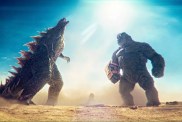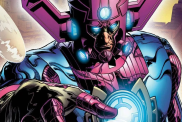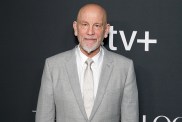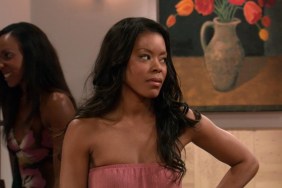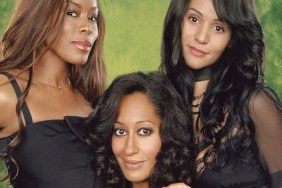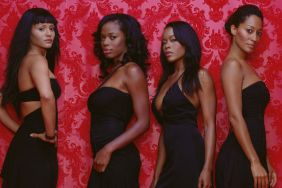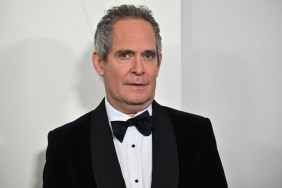Cast:
Seth Rogen as Dale Denton
James Franco as Saul Silver
Danny R. McBride as Red
Amber Heard as Angie Anderson
Gary Cole as Ted Jones
Rosie Perez as Carol
Craig Robinson as Matheson
Kevin Corrigan as Budlofsky
Adam Crosby as Ack
Nora Dunn as Shannon
Bill Hader as Private Miller
Andrew Heald as Blake
Ken Jeong as Ken
Peter Lewis as Peter
Robert Longstreet as Dr. Terrence
Joe Lo Truglio as Mr. Edwards
Arthur Napiontek as Clark
Eddie Rouse as Lance
Directed by David Gordon Green
Summary:
Trying too hard to keep things lights amidst the violence is what ends up making Rogen and Goldberg’s follow-up to “Superbad” more like “Bad Boys” or “Rush Hour” than “Cheech & Chong.”
Story:
It’s just another day in the life of process server Dale Denton (Seth Rogen) until he’s witness to a murder by a drug tsar (Gary Cole) and a corrupt police officer (Rosie Perez), and he suddenly finds himself on the run from thugs along with his inept and constantly-stoned pot dealer Saul Silver (James Franco).
Analysis:
After last year’s hilarious “Superbad,” anyone anxiously awaiting Seth Rogen and Evan Goldberg’s second effort might forgive that “Pineapple Express” isn’t the most obvious or expected follow-up, as it awkwardly tries to meld together an amalgam of stoner and buddy action comedies. Because the results are only partially effective, those expecting another riotous comedy might want to lighten their expectations, because it’s not that kind of comedy.
We meet Rogen’s character, pot-smoking process server Dale Denton, as he’s doing his rounds. He’s damn good at his job, too, even with his proclivity for being high all the time, but his regular stop to refill his supply from pot dealer Saul, played by James Franco, almost unrecognizable in a long wig and glazed look, becomes the catalyst for trouble when Dale receives a new blend called “Pineapple Express.” After hanging out a bit, Dale goes off to serve his latest victim with papers, only to witness said guy, Ted Jones (Gary Cole), killing a Chinese guy in cold blood. When Dale freaks out and drives off, Jones sets his goons on him, tracing him back to Saul via a joint dropped at the crime scene.
Even after just one movie, the “Superbad” creators are already trying to survey other genres, but their attempt to play in Quentin Tarantino territory doesn’t seem nearly as organic as “Superbad,” even if that took ten years of development to make it that way. Instead, they try to make a movie that’s as cool as those made in the ’70s that isn’t able to stand up to them. “Superbad” never really felt like a studio movie, nor did it look particularly slick, so it’s not surprising to see indie mainstay David Gordon Green at the helm of this one. Even with his genre chops from movies like “Undertow,” he seems somewhat out of his depth trying to blend action and comedy, two new areas of exploration for him, and they don’t always fit well together in this case.
As with any buddy movie, it comes down to how well Rogen and Franco work together, the evolution of their relationship being the main drive of the movie, as Dale tries to keep his distance from his drug hook-up, and the two of them are brought closer together by adversity. It’s not a particularly original character arcjust see every single other buddy comedy ever madebut neither character comes off as well-rounded or developed as necessary for the audiences to really care what happens to them. Why Dale has a girlfriend who is still in high school (played by Amber Heard) seems to serve very little point to the story except to have a scene where he meets her parents (Ed Begley and Nora Dunn) for the first time; it’s a funny scene that deserved a callback which never comes.
Even so, there’s no way to skirt the fact that Danny McBride steals the movie as Saul’s own distributor, Red, an eccentric and loud-mouthed redneck who talks non-stop and proves to be almost impossible to kill as we learn over the course of the movie. There’s little doubt that McBride’s character is the one that will leave the most lasting impression on audiences and the one that they’ll walk away from the movie wanting to see more.
Despite marijuana being one of the main plot devices for the storythe movie even opens with the origins of pot in an underground military basethis isn’t necessarily a stoner comedy where it’s all about smoking weed and getting into all sorts of “high jinks” afterwards. (That aspect of the movie tends to be more in the first half.) While the collected works of Cheech Marin and Tommy Chong were an obvious influence, the movie doesn’t have the “feel good” vibes that usually comes with those movies, the humor being far more mean-spirited.
The action is decent if somewhat unspectacular, going for ’70s-style car chases that are effective only at stroking nostalgic cinephiles but unimpressive when held up to modern-day action movies. There’s a lot of funny character interactions and great lines, as their dialogue is still strong, but those jokes sometimes feel forced when shoehorned into the physical violence. Because of this, you’re never quite sure whether they’re trying to spoof the buddy action genre or trying to make a serious entry into the genre that can stand up to the likes of “Lethal Weapon,” “Rush Hour” or “Bad Boys.”
Some of the movie’s problems can be traced directly back to the miscasting of a number of key roles. Gary Cole has played better bad guys in the past, while Rosie Perez’s whining quickly gets tiring as she also isn’t believable as a ruthless police officer. When the two of them try doing a bit of comedy schtick together, it just doesn’t work. Otherwise, there are plenty of familiar faces from previous Apatow/Rogen outings, though casting comedic actors like Bobby Lee from “Mad TV” and Craig Robinson, Darryl from “The Office,” in roles as killers who are meant to be tough and menacing, takes a lot away from their effectiveness in those roles. Robinson kicked one out of the park as the doorman in “Knocked Up,” but doing a similar thing here, we never know if he’s just an overly sensitive hitman or has some sort of homosexual leanings towards his partner or what.
With all of the bad guys cracking jokes, it never feels as if any of them pose any real threat or danger to Dale and Saul, and it always feels like they’re trying to get laughs while fighting with each other. There’s something strangely perverse about playing up murder and violence for laughs, and it’s those mixed messages that are hard to get past even for the sake of entertainment. Invariably, you may find yourself stopping to wonder whether what you just laughed at was actually funny, and that’s a good way to kill any comedy right there.
The Bottom Line:
In the end, Seth Rogen and Evan Goldberg’s second movie definitely has its funny moments; it’s just not the non-stop laughfest some might be expecting after “Superbad” so it’s just as likely to disappoint the diehard as it is to convert the uninitiated. With confusing mixed messages that might leave some with mixed feelings, one can only recommend this with some reservations.


